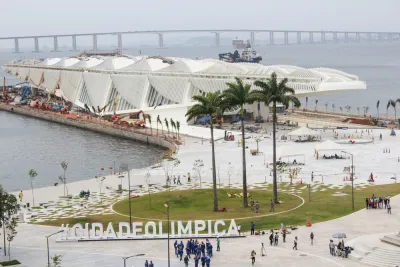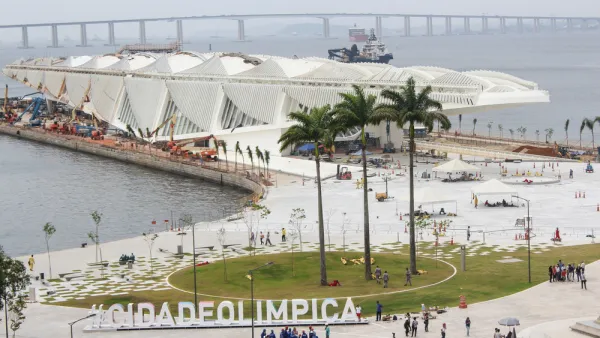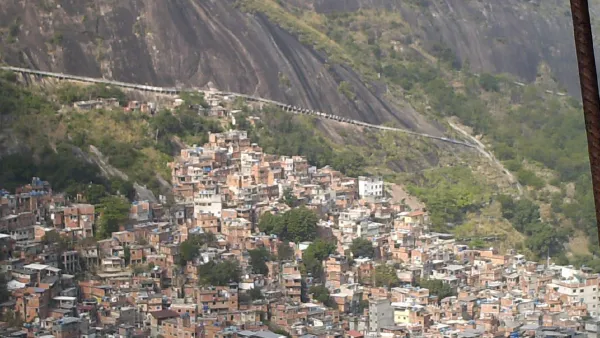A long-read in The Nation pokes large holes in the narrative of the Olympics as a beacon of equality and unity. The effect in Brazil, according to the article, has been quite the opposite.

According to an article by Dave Zirin, "the 2016 Summer Olympics in Rio de Janeiro could have been another chapter in this long history of facades for foreign consumption." Instead, "with a dramatic set of crises breaking out across the country, the multibillion-dollar Olympic mirage…is at risk of complete collapse. "
According to Zirin, it's easy provide a list of what's going wrong in the country—from political corruption to budget shortfalls to the public health risks of the Zika virus. Instead of characterizing the problems as "general chaos" and symptoms of the shortcomings of the developing world, Zirin pins the responsibility for the country's troubles on the International Olympic Committee.
We have seen this corruption in city after city that has hosted the games, particularly since 9/11, as spiraling security costs and out-of-control budgets have become central to the games themselves. The names of recent Olympic host cities—Athens, Beijing, London, Sochi—are more likely to conjure images of heavily armed troops; abandoned, rotted-out Olympic stadiums; and multibillion-dollar price tags than anything that happened on the field of play.
But for this year’s Rio Olympics, the corruption is also a function of how Brazil’s elites have always done business, and the crisis has little to do with general problems in the “developing world.” Instead, it is closely connected to the fact that Brazil is an incredibly unequal society, with oligarchical elites who disdain the poor, mourn for a lost military dictatorship, and don’t particularly care for democracy (all attractive traits to the IOC when looking for an Olympic host city).
Zirin reports from Rio de Janeiro, where he met with Mayor Eduardo Paes, to hear his case for the case for the Olympics as a legacy-building success for the country. Zirin replies to that narrative by describing the displacement that has come as a consequence to the Olympic ambition. He visits residents of the Colônia Juliano Moreira public housing project, finding "the voices of the poorest, least empowered people in the city," who Zirin says have "the power to overturn the $11.9 billion apple cart by exposing as a lie the idea that the Olympics are a social good."
FULL STORY: Budget Failures, Displacement, Zika—Welcome to Rio’s $11.9B Summer Olympics

Analysis: Cybertruck Fatality Rate Far Exceeds That of Ford Pinto
The Tesla Cybertruck was recalled seven times last year.

National Parks Layoffs Will Cause Communities to Lose Billions
Thousands of essential park workers were laid off this week, just before the busy spring break season.

Retro-silient?: America’s First “Eco-burb,” The Woodlands Turns 50
A master-planned community north of Houston offers lessons on green infrastructure and resilient design, but falls short of its founder’s lofty affordability and walkability goals.

Test News Post 1
This is a summary

Analysis: Cybertruck Fatality Rate Far Exceeds That of Ford Pinto
The Tesla Cybertruck was recalled seven times last year.

Test News Headline 46
Test for the image on the front page.
Urban Design for Planners 1: Software Tools
This six-course series explores essential urban design concepts using open source software and equips planners with the tools they need to participate fully in the urban design process.
Planning for Universal Design
Learn the tools for implementing Universal Design in planning regulations.
EMC Planning Group, Inc.
Planetizen
Planetizen
Mpact (formerly Rail~Volution)
Great Falls Development Authority, Inc.
HUDs Office of Policy Development and Research
NYU Wagner Graduate School of Public Service



























